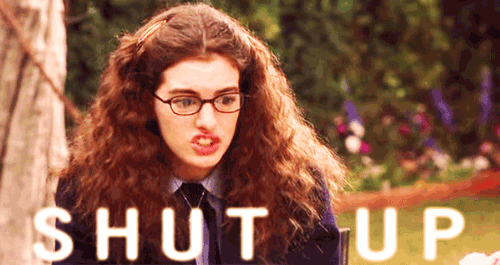I am constantly discovering how different habits or aspect of my personality are related to my OCD. It is both fascinating and unnerving.
For example, as a little girl I used to keep a journal. When I would write in it I felt a lot of pressure to make sure I recorded every minute detail (after seeing the film I once wrote out the ENTIRE plot to The Princess Diaries…). I couldn’t really pin down the source of the anxiety but I knew that I wasn’t writing in such excruciating detail because I wanted to, but more because I felt anxiety if I didn’t.

I recently learned about Memory Hoarding, a sub-type of OCD where the sufferer over-attends to memories. They view memories almost like objects that need to be gathered or collected. One might spend time replaying a memory, over and over, in order to ensure that it is able to be recalled accurately, and the thought of not being able to revisit that memory at a later time causes a lot of anxiety. Or one may focus too much on “appreciating the moment” which in and of itself causes someone to not fully appreciate that moment.
For me it works like this; I will be having a good time or sharing a special day, and feeling particularly happy. Then I have the intrusive thought that it could all be snatched away from me and this time next year I will be aching for this exact moment, unable to accurately recall it. The compulsion is to look around and take mental pictures, to pay extra close attention to my emotions and my surroundings, and to truly appreciate and savor everything – or else something terrible will happen. For most people taking time to savor the moment is a good thing, a healthy thing. But for someone with OCD this over attention to detail is fueled by anxiety and can have the opposite effect, pulling them out of the moment completely.
It makes sense why this is one of the ways in which my OCD manifests. My core fear has always been losing someone I love and as a kid I remember hearing people talk about how someone didn’t appreciate something until they lost it, or how you don’t know what you’ve got until its gone. My OCD brain then decided that if I could just make sure to appreciate things while I have them then I won’t lose them.
As I got older I grew out of the need to write every trivial detail in my journal but it manifested itself in other ways. For example, if I know it is the last time I am going to be somewhere (such as an apartment I’m moving out of, or a job I’m leaving) I will take an excessive amount of photos with my iphone. I feel that I must capture everything, from every angle, so that I can later recall exactly what it felt like to be in that room, or sit in that chair, or walk on that floor. The idea that I will look back and have forgotten details (which I am aware is an inevitable part of life) gives me a lot of anxiety.
If something, maybe a song or a scent for example, triggers a memory from my past I will have to sit and really delve into that memory recalling as much detail as possible. I can’t stop thinking about it until I really feel like I am back in that moment and can be sure that the memory is still safely stored in my mind.
Another way I experience memory hoarding is when I am walking away from a good moment or a person that I love. For example if I am standing and happily watching the sunset and it is time to go back to the car I will continue looking over my shoulder, again and again, trying to get the last “perfect” image to tie to those happy emotions. Once the image feels right, I can’t look at the sunset again or else I’ll have to start over. I experience this most intensely when saying goodbye to my family at the airport. I feel like I have to have a perfect mental image of them or something bad will happen, so I look back over my shoulder dozens of times as my family is waving to me.

But now that I am aware that this is part of my OCD I can work to combat it. I can purposely looking away from the sunset when it doesn’t feel “right” and just allow the anxiety to be with me. I can wait as the anxiety slowly dissipates and remind myself that this fear is just a construct of the faulty wiring in my brain and that, as hard as it is, it doesn’t need to control me.



